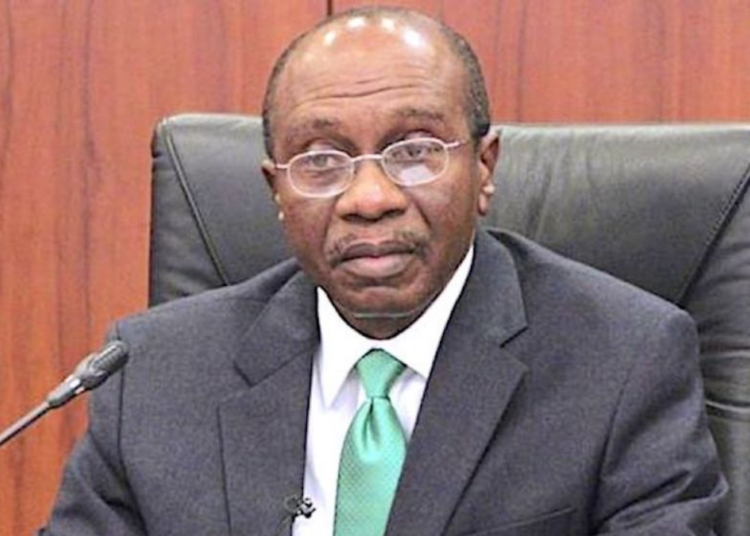The Nigerian payment system is undergoing a new phase of evolution. Rightly, the new payment system has the potential of providing individuals with a fast, secure and convenient way to conduct financial transactions, including payment for gifts, goods & services.
According to the Central Bank of Nigeria (CBN), a new system of hope for a confidence-based transactions is being entrenched, and what it simply requires is patience, understanding of the public for full-time manifesttation of a system that will reduce corporate corruption, kill money laundering, stamp out official corruption and entrench credible public finance management in Nigeria.
To do that, the CBN has introduced a host of money control policies with a focus on building a sustainable, inclusive and people-oriented payment system for all. Unexpectedly, there is an overwhelming level of acceptability of the new policies with many people now embracing alternative payment methods to cushion the effect of scarcity of naira notes.
To drive home its cashless policy initiative and fight currency counterfeiting, the CBN recently redesigned the higher-denomination of banknotes. A review of the implementation process shows that stakeholders in the payment industry are now confident that the recent money control policies of the CBN, especially the currency redesign, reduction in the quantity of banknotes in circulation and expansion in the number of agent banking are all pointers to the fact that Nigeria will soon get it right with the issue of cutting down on the cost of cash maintenance and alarming inflation conundrum.
Scarcity of the banknotes and cash withdrawal restriction policy of the apex bank have pushed digital transactions to a record high.
A Nigerian banking report that was recently released by the Nigeria Interbank Settlement System has shown that the volume of electronic payments surged following cash shortages caused by currency redesign. According to the report, online transactions increased by 55 percent in January alone when implementation of the CBN’s policy on currency swap took effect.
Those who spoke with this report said the surge is a positive move towards full acceptability of the cashless society of the apex bank and the indeed, the federal government.
Point of Sales transactions reportedly rose to N807.16bn in January 2023. This is a 40.69 percent year-on-year increase from the N573.72bn transactions that was done in January 2022. According to new data from the Nigeria Inter-Bank Settlement System, total cashless transactions in Nigeria rose by 45.41 per cent y-o-y to N39.58tn in January 2023.
The cashless policy of the central bank is facilitated by 900,000 POS terminals, 14,000 Automated Teller Machines (ATMs) across the country and 1.4 million agents nationwide. It is equally impressive to observe that Nigerians have embraced the CBN’s cashless policy, considering the way electronic transactions have grown in recent years.
Electronic transfer has also grown from N3 trillion in 2012 to N300 trillion as at October 2022 – a 7,000 per cent increase. The cashless policy is further complemented by mobile phone penetration in Nigeria which stands at 152 million, according to the Nigerian Communications Commission.
Nigeria’s cashless policy programme did not start today. It began in Lagos from January 2012, while the policy took effect in Rivers, Anambra, Abia, Kano, Ogun and the Federal Capital on the 1st of July 2013. The policy was implemented nationwide in July 2014.
The cashless policy is aimed at scaling up financial inclusion and reducing cases of armed robbery, kidnapping, terrorism financing, advance fee fraud, graft, ransom payment, extortion and other crimes.
Apart from that, the programme is also aimed to support the efforts of the nation’s security agencies in combating banditry and ransom-taking in Nigeria through the programme. As at the last check, the military are making good progress in this important task.
With an increasing number of people moving away from the use of cash, alternative payment options have become the preferred choice for many.
The naira redesign has also brought about a new normal for the nation and bank customers are more than ever, embracing bank transfers as one of the popular alternatives to cash for payment for goods and services. The option allows individuals to transfer money or pay bills from their bank account to the recipient’s bank account.
Bank transfers are usually done through online, Mobile, USSD or at bank branches, making it a secure and convenient way to pay for gifts right in the comfort of your bedroom. No physical presence is required! This option is especially useful for those who prefer to send gifts directly to the recipient’s bank account, as it eliminates the need for cash or gift cards.
The limited circulation of the new naira notes has forced the hand of speculators, resulting in some stability. The initial pressure is projected to further moderate as implementation of the currency swap policy takes off and a wider understanding of the system.
The journey to a functional cashless economy is succeeding for Nigeria, especially in the area of exchange rate stability. Findings by this reporter has shown that the limited circulation of the new naira notes has forced down the hands of speculators and Nigeria is beginning to witness some stability.
The initial pressure is projected to further moderate as the implementation of the policy takes-off and a wider understanding pervades the system.
With the new twist of things, persistent challenges that were inundating currency management in Nigeria and undermining Nigeria’s sovereign integrity are now abating.
The macroeconomic impacts of currency redesign are multidimensional and could seem uncertain especially at this early stage when its inconvenience is widespread.
By spurring more people to use bank accounts, this policy is started to further increase bank account ownership and increase the use of accounts by enhancing people’s saving behavior.
The policy is designed to encourage some hitherto informal business operators to formalize the pattern of transactions and adopt more formal settlement channels.
Effectively implemented currency redesign causes a fall in money supply. Official data has shown that it is has led to reduction of value of money in circulation and a deceleration of the velocity of money in the economy leading to less pressures on domestic prices. Basic economic tenets under the quantity theory of money suggests that the fall in monetary velocity could retard price growth and taper nominal money supply.
The policy is now producing the desired result. The prices of grains and key staples have generally been on the downward trend since the beginning of the policy. The price for soya beans has dropped from N30,000 to N22,000. Maize from N18,000 to N16,000. The price of a bull fell from N400,000 to N330,000 and ram from N75,000 to N50,000.
Online payment platforms have revolutionized the way Nigerians make payments. The platforms enable individuals to send and receive money online, making it possible to pay for gifts without the need for cash. The platforms have a secure payment gateway that enables individuals to make payments using their debit or credit cards, or through mobile banking. This allows gift givers to send money to the recipient quickly and securely, without the need to go to a bank or retail outlet.
However, some industry watchers like the Nigeria Employers’ Consultative Association (NECA) and the Nigerian Economic Summit Group (NESG) who applauded the policy direction have also criticized its poor implementation.
While NECA has expressed displeasure over the effect of the scarcity of the naira notes on businesses, NESG said called on the CBN and the bankers committee to incentivise the use of digital channels for financial transactions to cushion the effects of the cash crunch facing Nigerians and their businesses. Specifically, NESG said there should be incentives to promote the use of digital channels, such as a reduction of charges on transactions associated with digital channels.
It said Nigeria’s digital infrastructure should be strengthened also to enable digital payment system in Nigeria. “There is an urgent need to expand the capacity of the digital financial system to accommodate the mass migration to digital channels. This is important to ensure a seamless transition to digital channels as alternatives to cash,” the group said in a report that was recently published.





